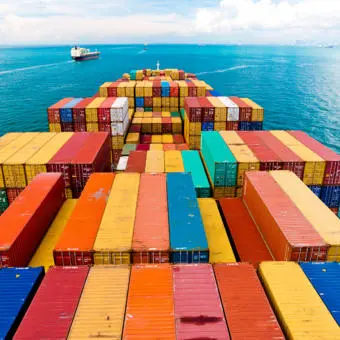- The new report – entitled “Reaching net zero: incentives for supply chain decarbonization” – was developed in consultation with 11 multinational corporations to help them achieve net zero targets
- The report outlines four strategic approaches that can be harnessed to motivate business climate action and abate Scope 3 emissions
Geneva, 16 November – The World Business Council for Sustainable Development (WBCSD) and PwC UK have today unveiled a new report for business outlining incentives for supply chain decarbonization.
The new report – entitled “Reaching net zero: incentives for supply chain decarbonization” – introduces a new framework to support businesses to motivate action amongst their suppliers and was developed in consultation with 11 multinational corporations.
The framework outlines four significant incentivization approaches, that include levers ranging from penalty- to reward-based, as well as financial and non-financial. The report is supported by case study examples of how companies, including Microsoft and Philips, are already using these levers to drive climate action within their supply chains and limit their Scope 3 emissions.
A significant number of multinational businesses have set net zero targets to address the interlinked climate, nature and inequality crises. To achieve these net zero targets, businesses must reduce their Scope 3 emissions – indirect emissions that occur in a company’s value chain.
Emissions from supply chains comprise the vast majority of total corporate sector greenhouse gas emissions, roughly the equivalent to 11 times the emissions that result from the direct operations of businesses. It is therefore essential that companies address these.
However, the combination of competing business priorities and supply chain complexity has led to many organizations stalling or delaying action to address their Scope 3 emissions. Incentivization plays a vital role in abating emissions from corporate supply chains and multinationals are uniquely positioned to support and influence the decarbonization journey of their suppliers through the use of incentives.
“The business imperative to decarbonize supply chains is crucial if we are to achieve a net zero, nature positive and equitable future for 9+ billion people to live, within planetary boundaries, by 2050,” commented John Revess, Director of Net Zero Transformation at WBCSD. “Competing organizational priorities have meant that action to abate Scope 3 emissions has been limited, but our new report, developed with PwC, is a timely guide to help corporates take climate action through incentivization to decarbonize their supply chains.”
Dan Dowling, Sustainability and Climate Change Partner at PwC UK, added: “Companies’ net zero commitments require a much more ambitious value chain response. To successfully decarbonize, organizations not only need to define the incentivization strategy, tools and investments within their own supply chains, but also collaborate cross-industry and harmonize approaches to accelerate action.
“Fueled by the insights and experiences of WBCSD members, the launch of this report offers a pathway towards much-needed clarity and consistency for those on the front line of taking action on supply chain decarbonization and reducing Scope 3 emissions.”
WBCSD news articles and insights may be republished in accordance with the Creative Commons Attribution-NonCommercial-NoDerivatives 4.0 International Public License, and in accordance with our Privacy Policy. All Content must be featured with due credits.
